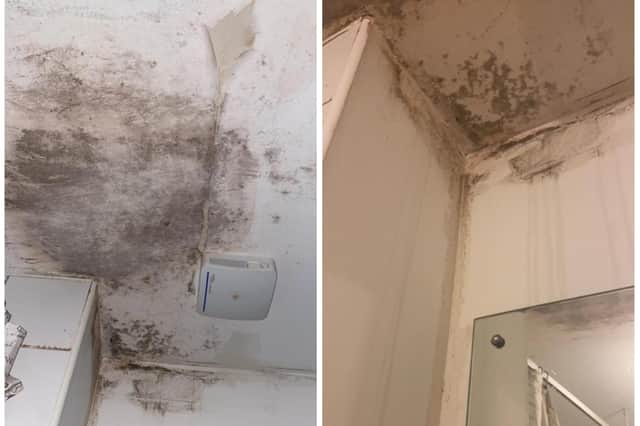Damp and mould detectors rolled out to social housing in Glasgow


A pilot project by Glasgow City Council will see technology rolled out in social housing which will detect damp and mould imminently - meaning landlords can spot issues and take action before it comes a health issue.
The new system monitors the temperature and humidity levels in properties and analyses moisture readings every 30 minutes.
Advertisement
Hide AdAdvertisement
Hide AdResidents of the West Of Scotland Housing Association and Southside Housing Association have become the first to benefit from the smart technology.
Delivered by technology company North, up to 30 homes across the central belt now feature state-of-the-art sensors, however the council hopes for a wider roll-out of the technology.
Councillor Kenny Mclean, city convener for housing at Glasgow City Council said: “Our work with our partners on this pilot project will see the use of technology that will hopefully improve the lives of residents and the condition of their homes. The success of this pilot could pave the way for wider adoption of such technology to optimise energy efficiency, in turn reducing fuel poverty and the impact of housing on the environment.
“Hopefully it will improve the delivery of housing and other services to households.”
Advertisement
Hide AdAdvertisement
Hide AdThe smart Tempus sensors will share real-time data through IoT Scotland, Scotland’s Internet of Things (IoT) network, which is managed by North, with Glasgow City Council and the registered social landlords (RSL) who will record and analyse moisture readings.
More than 75% of RSLs in Glasgow have confirmed that they would welcome the use of IoT devices to enhance services and the quality of housing.
It is hoped that following the success of the pilot scheme, the solution can be rolled out across hundreds more homes in Glasgow and beyond. Over time, this will significantly improve operating performance, reduce costs and enhance the value delivered to housing association tenants.
Julie Hutchison, business development manager at North said, “Poor property conditions can create serious health and wellbeing problems for residents, as well as cost housing associations hefty repair bills when issues are left to worsen.
Advertisement
Hide AdAdvertisement
Hide Ad“Housing associations are working in partnership with Glasgow City Council to try and proactively minimise these issues and create healthier and safer places for residents to live, and with North’s support, future-proof its availability for fit-for-purpose accommodation.
“Technology and data gathering are key to almost all digital strategies and this project will allow the housing sector to use digital innovation to enhance services, home and the quality of life for residents.”
Comment Guidelines
National World encourages reader discussion on our stories. User feedback, insights and back-and-forth exchanges add a rich layer of context to reporting. Please review our Community Guidelines before commenting.